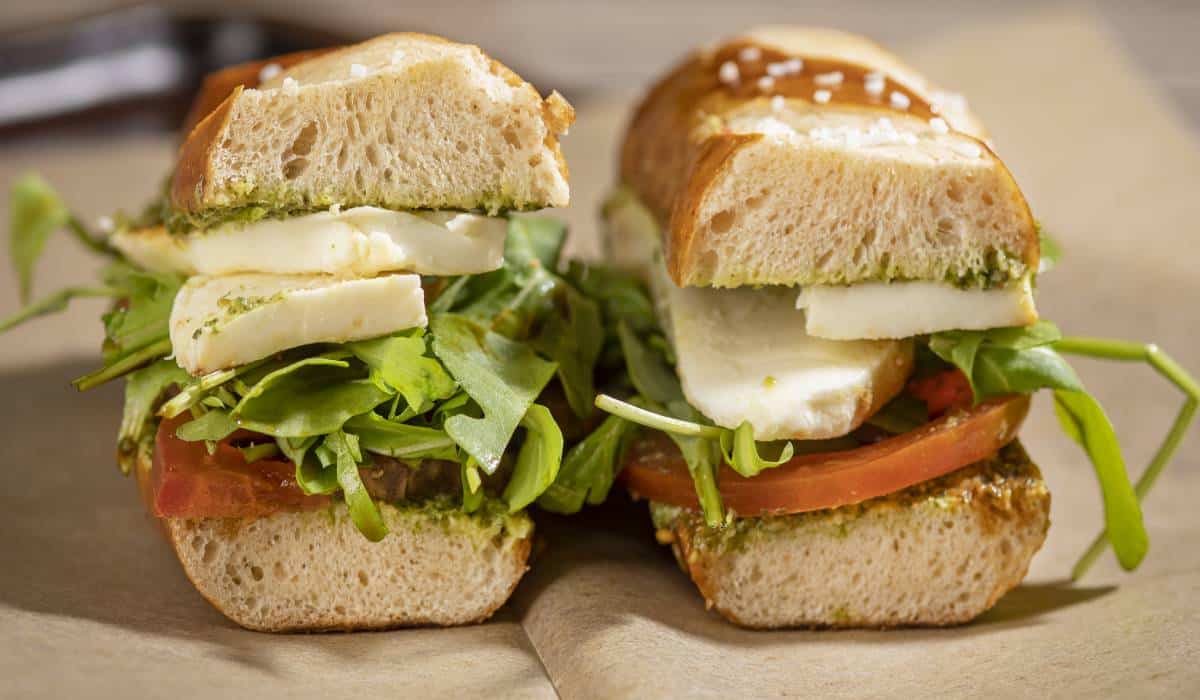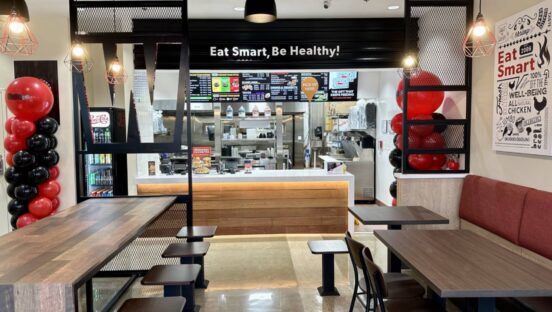Florian Pfahler came to the U.S. 30 years ago from his native Germany and settled in New York City. Like most New Yorkers, Pfahler would order out for lunch during the work week. One day, while rummaging through his to-go bag, Pfahler noticed how much extra paper and plastic products were tossed in with his food. His sandwich was wrapped in foil, which was placed into a brown bag, along with almost two dozen napkins and a handful of condiments he didn’t ask for.
“I had only eaten for several minutes and there was all of a sudden so much trash in front of me,” Pfahler says.
Alarmed by how much wasted product was included with his lunch, Pfahler approached his co-workers to confirm they had had similar experiences when grabbing lunch takeout.
“I really wanted to change that experience,” Pfahler says.
Pfahler credits occurrences such as those with inspiring the idea for Chicago-based Hannah’s Bretzel, a concept he named after his first daughter, which offers European-style sandwiches on freshly baked whole-grain “bretzel” bread, or pretzel baguettes. The brand uses premium, organic ingredients and prioritizes qualities such as antibiotic and hormone free.
Most importantly, however, is Hannah’s commitment to sustainability, a guiding principle for everything it does, Pfahler says. It’s an idea that’s been ingrained in him since growing up in Germany, where sustainable business practices are more common. He was a key figure in the founding of Chicago’s Green Restaurant Co-op, which helps other concepts achieve sustainability goals.
READ MORE: Just Salad Wants the World to ‘Eat With Purpose’
Since opening in 2004, Hannah’s has sought to separates itself by taking an all-around approach to green solutions, including 100 percent of energy coming from solar and wind. Although, that distinction may be slightly misleading. Pfahler partners with an energy provider to bring solar and wind power to his company. In what is known as “green pricing,” he pays a premium to ensure all of the energy sent to Hannah’s units has been generated from renewable energy sources. The premium price covers the increased costs incurred by the power provider, and lets customers know the energy the restaurant is using comes from “clean” sources.
“If I could, I would love to be able to have a plot of land where we could install windmills and generate our own electricity,” he says.
Hannah’s also uses a fleet of electric Mini Coopers to handle deliveries throughout the Chicagoland area. Pfahler says the fleet is perfect for an urban setting because the cars can travel for more than 100 miles per charge, leading to a reduction in carbon emissions. The move to an all-electric fleet saves money on fuel expenses as well.
“I find the lack of creativity and vision from some of the larger brands to be astonishing,” he says. “For a lot of these brands, sustainability isn’t something that is even considered when it comes to the balance sheet.”
In addition to clean energy sourcing and electric-powered transportation, restaurants use biodegradable to-go packaging, and Pfahler pays close attention to how much paper is being used on and off-premises.
To make sure his customers don’t have a similar experience like when he first arrived in the U.S., staff at Hannah’s are trained to ask guests upfront whether they need a bag for to-go food. They also only toss in one napkin per sandwich, unless more are requested. These policies may seem inconsequential, but Pfahler says over time they can prevent some of the major waste associated with quick-service models.
Pfahler’s also made the decision to compost all unrecyclable waste Hannah’s produces. The CEO believes it’s more than possible to run a profitable, sustainable company, but he knows it requires major pivots in practices. He notes that sourcing clean energy and being mindful of paper and plastic usage are cost-saving measures.
“This is absolutely doable,” he says. “One of the biggest challenges has been showing you can do this without having any negative impact on your ability to survive in a competitive environment.”
Pfahler would love it if all businesses adopted greener practices through a sense of altruism, but he recognizes that isn’t plausible. But in the face of rising inflation, he thinks more businesses will come around to a greener mindset to save on costs wherever they can.
“Unfortunately, I think our industry is responsible for a lot of the risks associated with climate change,” he says. “Hopefully more and more businesses that participate in this space will start working toward a more sustainable direction. The information is out there to help them make informed decisions.”







